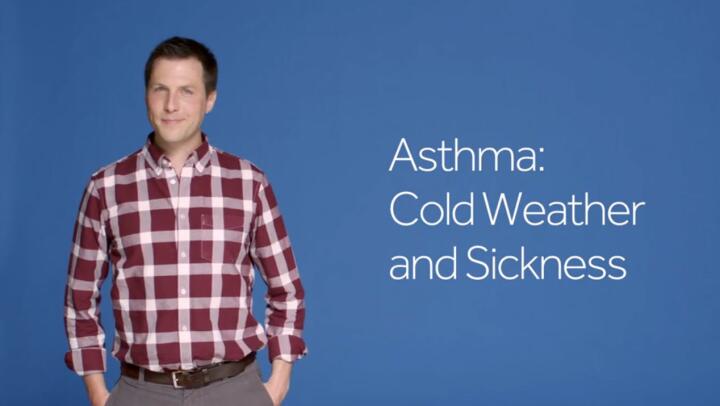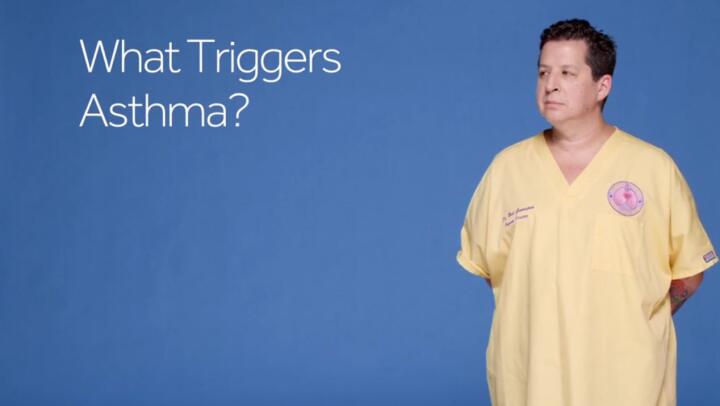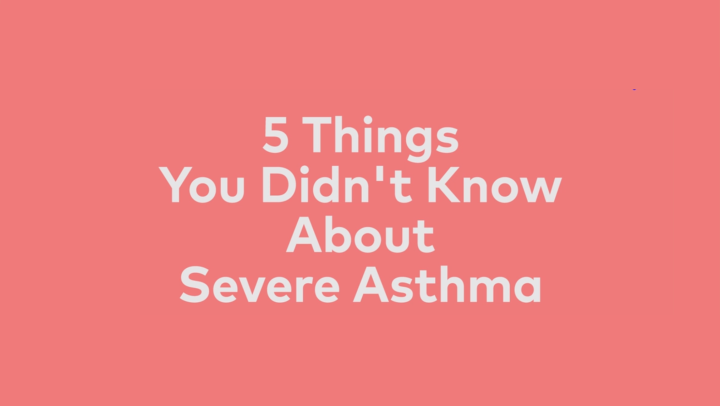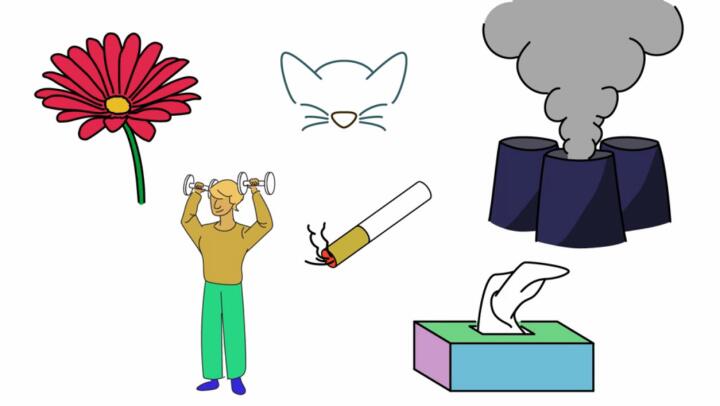8 Things You Might Not Know About Asthma

Medically Reviewed By William C. Lloyd III, MD, FACS
Written By Sarah Lewis, PharmD on April 15, 2020
-
 Asthma InformationIt isn’t always possible to breathe easy when you have asthma. More than 8% of American children and adults have the disease and know this well. But there’s a lot more to asthma than just difficulty breathing during an asthma attack. Here are some asthma facts you might not know.
Asthma InformationIt isn’t always possible to breathe easy when you have asthma. More than 8% of American children and adults have the disease and know this well. But there’s a lot more to asthma than just difficulty breathing during an asthma attack. Here are some asthma facts you might not know. -
 1. Asthma is one of the most common chronic diseases in children.More than 6 million children in the United States have asthma. Nearly half of these children miss one or more days of school each year because of their disease. The latest data from the CDC (Centers for Disease Control and Prevention) show this percentage has been going down. But kids with asthma still missed 13.8 million school days. This impacts both kids and their parents, who may miss work to care for their child.
1. Asthma is one of the most common chronic diseases in children.More than 6 million children in the United States have asthma. Nearly half of these children miss one or more days of school each year because of their disease. The latest data from the CDC (Centers for Disease Control and Prevention) show this percentage has been going down. But kids with asthma still missed 13.8 million school days. This impacts both kids and their parents, who may miss work to care for their child. -
-
 2. Kids with eczema are more likely to develop asthma.Eczema and asthma are both atopic diseases. They are part of a group of conditions doctors call the atopic march. Hay fever and food allergies are also in the atopic march. People with atopic diseases have an overactive immune response to allergens. Having one atopic condition increases the risk of developing another one. About 50% of people with severe eczema will also go on to develop asthma.
2. Kids with eczema are more likely to develop asthma.Eczema and asthma are both atopic diseases. They are part of a group of conditions doctors call the atopic march. Hay fever and food allergies are also in the atopic march. People with atopic diseases have an overactive immune response to allergens. Having one atopic condition increases the risk of developing another one. About 50% of people with severe eczema will also go on to develop asthma. -
 3. Not all asthma is allergic.Most, but not all, cases of asthma are allergic. About 90% of children and 50% of adults with asthma have allergic asthma. Allergens are the irritants that trigger symptoms. Examples include animal dander, dust mites, mold spores, and pollen. In people with non-allergic asthma, the irritants may include cold air, exercise, smoke, chemicals, or strong odors or fumes. People with allergic asthma can react to these triggers as well. So even allergic asthma isn’t always an allergic reaction.
3. Not all asthma is allergic.Most, but not all, cases of asthma are allergic. About 90% of children and 50% of adults with asthma have allergic asthma. Allergens are the irritants that trigger symptoms. Examples include animal dander, dust mites, mold spores, and pollen. In people with non-allergic asthma, the irritants may include cold air, exercise, smoke, chemicals, or strong odors or fumes. People with allergic asthma can react to these triggers as well. So even allergic asthma isn’t always an allergic reaction. -
 4. Wheezing isn’t the only symptom of asthma.Wheezing is one of the most common symptoms of asthma. But you may not always have wheezing or be able to hear it. It turns out that a chronic cough may be a more noticeable symptom. Since asthma tends to act up at night, coughing a lot at night can be a sign of uncontrolled asthma. If you notice this, it’s probably time to see your doctor. Getting your asthma under control can help you get a good night’s sleep.
4. Wheezing isn’t the only symptom of asthma.Wheezing is one of the most common symptoms of asthma. But you may not always have wheezing or be able to hear it. It turns out that a chronic cough may be a more noticeable symptom. Since asthma tends to act up at night, coughing a lot at night can be a sign of uncontrolled asthma. If you notice this, it’s probably time to see your doctor. Getting your asthma under control can help you get a good night’s sleep. -
 5. Inhalers aren’t the only treatment for asthma.Inhaled medicines are an important part of an asthma treatment plan. Rescue inhalers work quickly to relax the airways and relieve symptoms. And maintenance inhalers are key to long-term control of the disease. But inhalers aren’t the only option for maintaining control. There are also oral medicines for preventing attacks. Injectable biologics may also be an option if other medicines can’t keep your asthma under control.
5. Inhalers aren’t the only treatment for asthma.Inhaled medicines are an important part of an asthma treatment plan. Rescue inhalers work quickly to relax the airways and relieve symptoms. And maintenance inhalers are key to long-term control of the disease. But inhalers aren’t the only option for maintaining control. There are also oral medicines for preventing attacks. Injectable biologics may also be an option if other medicines can’t keep your asthma under control. -
-
 6. Most people don’t use inhalers correctly.Research from 2017 found that 87% of adults made at least one critical mistake when using their inhaler. The research included different types and brands of inhalers. The most common mistakes were not exhaling beforehand, not using proper mouth position, and not holding the breath after inhaling. It’s important to know there are both open- and closed-mouth techniques. And the best option is to use a spacer or chamber. But even that has a proper technique. An asthma educator is the best resource for getting it right.
6. Most people don’t use inhalers correctly.Research from 2017 found that 87% of adults made at least one critical mistake when using their inhaler. The research included different types and brands of inhalers. The most common mistakes were not exhaling beforehand, not using proper mouth position, and not holding the breath after inhaling. It’s important to know there are both open- and closed-mouth techniques. And the best option is to use a spacer or chamber. But even that has a proper technique. An asthma educator is the best resource for getting it right. -
 7. “Rules of Two” can check your asthma control.Baylor College of Medicine has a quick way for you to check your control. It’s the Rules of Two. Do you use your rescue inhaler more than two times a week? Do you have symptoms that wake you at night more than two times a month? Do you refill your rescue inhaler more than two times a year? Yes, to any of these means it’s probably time to schedule a visit with your doctor. Your asthma treatment plan may need adjustment.
7. “Rules of Two” can check your asthma control.Baylor College of Medicine has a quick way for you to check your control. It’s the Rules of Two. Do you use your rescue inhaler more than two times a week? Do you have symptoms that wake you at night more than two times a month? Do you refill your rescue inhaler more than two times a year? Yes, to any of these means it’s probably time to schedule a visit with your doctor. Your asthma treatment plan may need adjustment. -
 8. Uncontrolled asthma is dangerous.According to the CDC, 62% of adults with asthma have uncontrolled disease. And more than half of children with asthma are uncontrolled. Uncontrolled asthma isn’t just uncomfortable, it puts you at risk of complications. It can keep you home from school or work and send you to the doctor’s office. Severe asthma attacks can put you in the hospital. Severe attacks can progress quickly and lead to respiratory arrest and even death. Use your asthma action plan to monitor your asthma zone. Find help if you’re in the red zone or danger zone.
8. Uncontrolled asthma is dangerous.According to the CDC, 62% of adults with asthma have uncontrolled disease. And more than half of children with asthma are uncontrolled. Uncontrolled asthma isn’t just uncomfortable, it puts you at risk of complications. It can keep you home from school or work and send you to the doctor’s office. Severe asthma attacks can put you in the hospital. Severe attacks can progress quickly and lead to respiratory arrest and even death. Use your asthma action plan to monitor your asthma zone. Find help if you’re in the red zone or danger zone.
Asthma Information | 8 Things You Might Not Know About Asthma






























